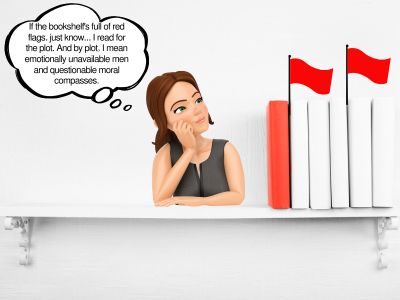Unreliable Narrators: The Truth, The Whole Truth, and Nothing but a Good Story.
Hey there, fellow armchair detectives and thriller aficionados! Today, we’re diving deep into the murky waters of unreliable narrators in the world of mystery and thriller novels. You know, those characters who can’t seem to tell the difference between a fib and a full-blown whopper, leaving us readers scratching our heads and flipping pages faster than a speed reader on espresso. So, grab your magnifying glass and let’s embark on this literary journey together!
Now, let’s address the elephant in the room – unreliable narrators are like that friend who insists they know the way, but you end up lost in the middle of nowhere with nothing but a map from the Mesozoic era. They’re sneaky, slippery, and oh-so-enticing. But why the sudden rise in these characters? Well, strap in, dear reader, because we’re about to unravel this mystery.
First off, let’s talk about trust. You know, that delicate thread woven between reader and narrator that holds a story together like a budget DIY project. Unreliable narrators gleefully snip away at this thread, leaving us hanging on by a single fiber of disbelief. But hey, who needs trust when you’ve got suspense, am I right?
Then there’s the thrill of the unknown. Picture this: you’re cozying up with your favorite thriller, sipping on a cup of tea, when suddenly, BAM! The narrator drops a bombshell. Was it a lie? Was it the truth? Who knows? And that’s the beauty of it – the uncertainty keeps us hooked like a fish on a line, desperately gasping for more.
But let’s not forget the real MVP’s here.
And that would be the authors. These cunning wordsmiths are the puppet masters pulling the strings of our literary marionettes. With a flick of their pen, they can turn an innocent bystander into a master manipulator faster than you can say “plot twist.” So, hats off to you, dear authors, for keeping us on our toes and our minds thoroughly boggled.
One of the most iconic examples of an unreliable narrator can be found Gillian Flynn’s psychological thriller, “Gone Girl.” As the story unfolds through the alternating perspectives of Nick and Amy Dunne, readers are drawn into a web of lies and manipulation. Both characters present their version of events, leaving the reader to discern where the truth truly lies. Winding our way through the story, it becomes increasingly clear that neither narrator can be fully trusted. Thus leading to shocking twists and revelations that keep readers on the edge of their seats until the very end. The result is a thrilling journey into the dark recesses of human nature, where nothing is as it seems.
Similarly, in Paula Hawkins’ “The Girl on the Train,” the protagonist, Rachel, struggles with alcoholism and memory loss, casting doubt on her reliability as a narrator. As she becomes entangled in a missing person investigation, her fragmented recollections and unreliable observations keep readers guessing until the final, shocking reveal.
What sets these narratives apart?
It’s not just the presence of unreliable narrators, but the skillful execution with which they are employed. Authors meticulously craft their characters’ voices, planting subtle clues and red herrings along the way to keep readers engaged and guessing. The unreliable narrator becomes a narrative puzzle, challenging readers to sift through the layers of deception and discern the truth for themselves.
Furthermore, unreliable narrators offer authors a unique opportunity to explore themes of subjectivity and perspective. By presenting the story through the lens of a flawed or unreliable narrator, writers can challenge traditional notions of truth and reality, inviting readers to question their own beliefs and assumptions. This narrative ambiguity encourages active engagement from the audience, as they are forced to critically analyze the text and piece together the underlying truths hidden beneath the surface.
In the iconic novel, “Lolita,” the unreliable narrator, Humbert Humbert- what a name, right? -invites readers into his disturbing world of obsession and delusion. Through his warped perspective, Humbert justifies his reprehensible actions, manipulating the reader’s sympathy and understanding. However, as the narrative unfolds, the true extent of Humbert’s deception is revealed, forcing readers to confront the uncomfortable truths lurking beneath his charming facade.
What about the OG himself?
And let’s not forget, Edgar Allan Poe, whose tales of mystery and madness still haunt our dreams to this day. It was actually during The Raven that I first encountered an unreliable narrator.
Ultimately, the use of unreliable narrators serves as a powerful tool in the author’s arsenal, allowing for the creation of suspenseful and thought-provoking narratives that linger in the minds of readers long after the final page has been turned. By challenging perceptions, manipulating emotions, and keeping audiences guessing until the very end, unreliable narrators remind us of the inherently subjective nature of storytelling, inviting us to explore the murky depths of human experience with an open mind and a critical eye.
So, dear reader, the next time you find yourself knee-deep in a thriller with an unreliable narrator, embrace the chaos. Embrace the uncertainty. And above all, embrace the journey, because in the world of mystery novels, the truth is often stranger than fiction. Now if you’ll excuse me, I’ve got a date with a detective and a suspiciously blood-stained library card. Happy sleuthing!
If you still need to grab any of these great reads, you can get them here on Amazon. Or get one for free when you sign up for a free trial from Audible.
Until next time, Keep yourselves brash, keep it bookish and keep true to you!
Cover photo credit to: Mel Poole on Unsplash







